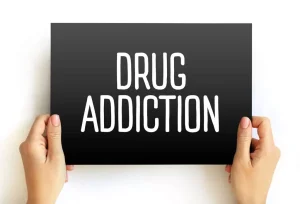
They can encourage you along the way and keep you company if you’re using exercise or other tactics to help you cope. In the short-term, drinking too much can lead to alcohol poisoning, sleep problems, an upset stomach, bloating and migraines. It may make you behave recklessly or aggressively, have an accident or become the victim of violence.

Drinking Alcohol While Depressed
This may be because they ‘self-medicate’, meaning they drink to deal with difficult feelings or symptoms. Long-term alcohol misuse increases your risk of serious health conditions, including heart disease, stroke, high blood pressure, liver disease and cancer. It can lead to social problems such as relationship break-ups, unemployment, financial difficulties and homelessness. If you drink heavily on a regular basis, however, the depressive effects of alcohol may become a part of your daily life. Alcohol withdrawal leads to decreases in dopamine function.11 If you’re in recovery, and depression is a drinking trigger for you, this can make things especially difficult. Your system will eventually recover, but it can be helpful to have long-term support.
How Long Do The Depressive Effects of Alcohol Last?
In the DSM-5, AUD requires at least two symptoms, whereas DSM-IV alcohol abuse required only one symptom. Also, from DSM-IV to DSM-5, modifications were made to the symptoms that were included as diagnostic criteria. For example, the criterion of legal problems related to alcohol was removed, and the criterion of alcohol craving was added. Thus, where possible, this review identifies which version of the DSM was used in a study. At first, alcohol produces euphoria and excitement, but such feelings are short-lived. Alcohol is a depressant that affects the central nervous system (CNS) and the brain’s functionality.

Alcohol and Depression: The Link Between Alcoholism and Depression
Some researchers have suggested that the effects of psychotherapy may account for some of the pill placebo response observed in medication studies. According to the Diagnostic and Statistical Manual of Mental Disorders, Fifth Edition (DSM-5), if depression symptoms persist after one month without consuming alcohol, then a different depressive disorder diagnosis would apply. However, alcohol can make these feelings and other symptoms worse over time, perpetuating the cycle of alcohol consumption and depression. One study of 421 people found that 25% had both alcohol misuse and depression. When other factors beyond alcohol play into your mood, however, feelings of depression might persist even after your hangover improves. There are a multitude of different treatment options available for those struggling with depression and an alcohol use disorder.

What Are the Most Common Types of Primary Headaches, and How Are They Treated?
If you begin to notice any unwanted side effects — physical or emotional — while drinking, it may be best to call it a night. According to the National Institute on Alcohol Abuse and Alcoholism, moderate drinking means one drink per day for women and two drinks per day for men. If you already feel a little low, giving yourself a hard time for overdoing the alcohol probably won’t improve matters.
- CBT is one of the most well-known and researched therapies and has an excellent track record for treating depressive symptoms.
- Inflamed sinuses from allergies or respiratory illnesses cause headaches that feel like squeezing, pressure, or pain in the cheeks, brow, or forehead.
- Drinking activates the reward system in your brain and triggers dopamine release, so alcohol often seems to have a stimulating effect — at first.
- There is a lot that we still need to understand about the link between alcohol and depression, and this is an emerging area of research.
Or you might attend an intensive inpatient group a few times each week. Depression can also be directly caused by alcohol in the case of a substance-induced disorder. Individuals diagnosed with clinical depression should be extremely cautious when it comes to using substances such as alcohol. According can alcohol make depression worse to Kennedy, for those taking antidepressants, combining them with alcohol can reduce their efficacy. Children who were abused or raised in poverty appear to be more likely to get both conditions. Women are more than twice as likely to start drinking heavily if they have a history of depression.
Could Drinking Be Fueling Your Depression?
Whether for you or a loved one who is struggling with depression and alcohol use, it is extremely important to make a change as soon as possible. One way to help treat low motivation and energy is through using low-dose stimulants. Certain medications and types of https://ecosoberhouse.com/article/how-marriage-changes-after-sobriety/ antidepressants include stimulants to assist in getting a person back to their normal daily activity. Antidepressants focus on treating the dopamine, serotonin, and norepinephrine neurochemical receptors by promoting increased chemical balance within the brain.